Project aims to grow a 'city of trees'
- Published
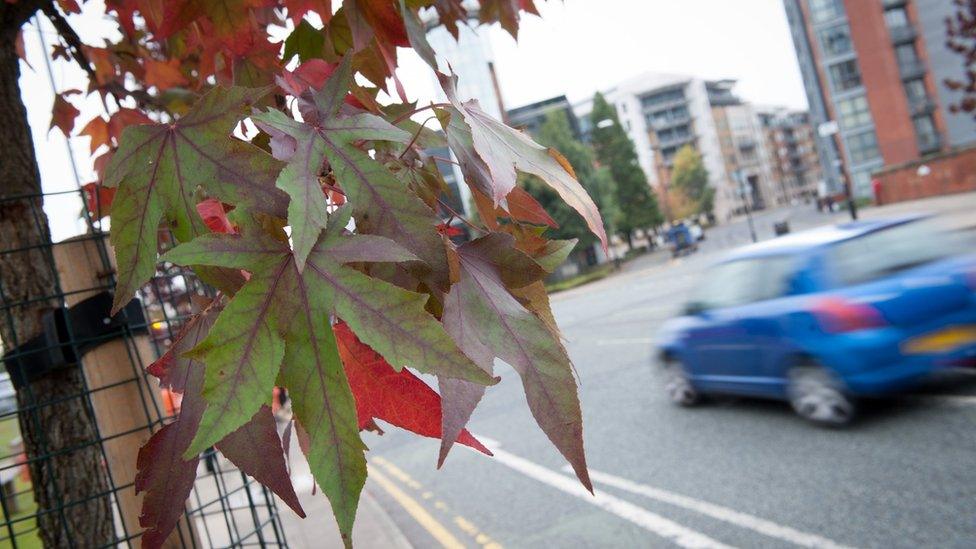
Urban trees offer practical benefits as well as aesthetic ones, say researchers
A project aims to plant three million trees - one for every man, woman and child - in Greater Manchester over the next 25 years.
Those behind City of Trees hopes the effort will not only green the region but improve our understanding of the benefits trees provide to society.
These include reducing stress, improve air quality and the amount of time shoppers spend in retail areas.
The project is also testing how trees can reduce flooding in built-up areas.
City of Trees director Tony Hothersall explained that the scheme had three main objectives.
"One is to plant three million trees, ie. a tree for every man woman and child, over the next 25 years," he said.
"Next, we are very much focused on bringing existing woodland into management because there is no point in planting new woodland if you can't manage what you've got already.
"Finally, we want to engage people a lot more in their natural environment; in planting trees; in managing areas; in understanding more about the benefits that trees and woodlands bring to our society."
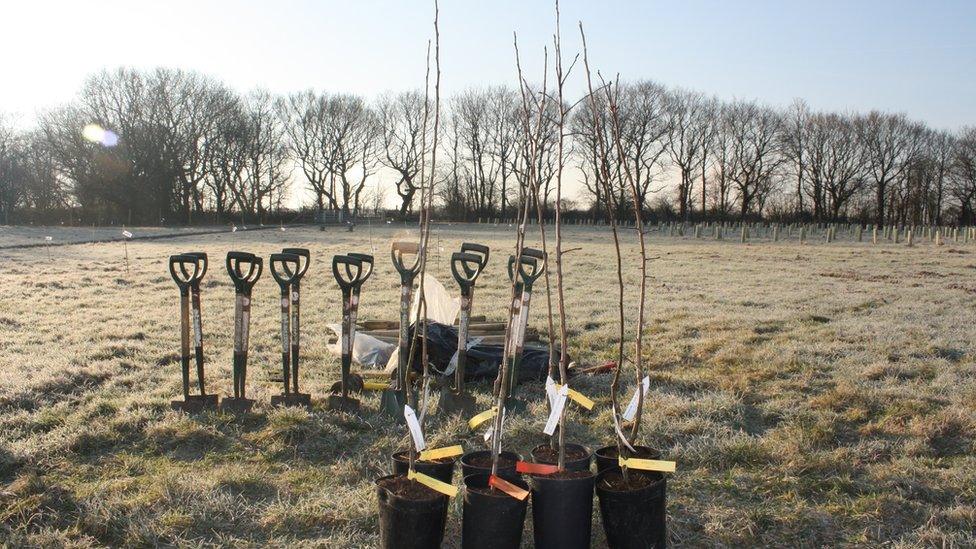
The project aims to plant three million new trees over the next 25 years
Mr Hothersall explained that the team planned to plant the trees all over the Greater Manchester area.
"We are working with partners and landowners to identify parcels of land for tree planting," he explained.
"It could be extending existing woodland and building up the biodiversity. It could be linking woodlands which also is very important for biodiversity. It could also be [planting] totally new areas of woodland."
He added that there was also a focus on street tree planting and in private gardens and parks.
"It is really about planting trees wherever it's appropriate to put trees," he explained, "what is really important is it's about the right tree in the right place."
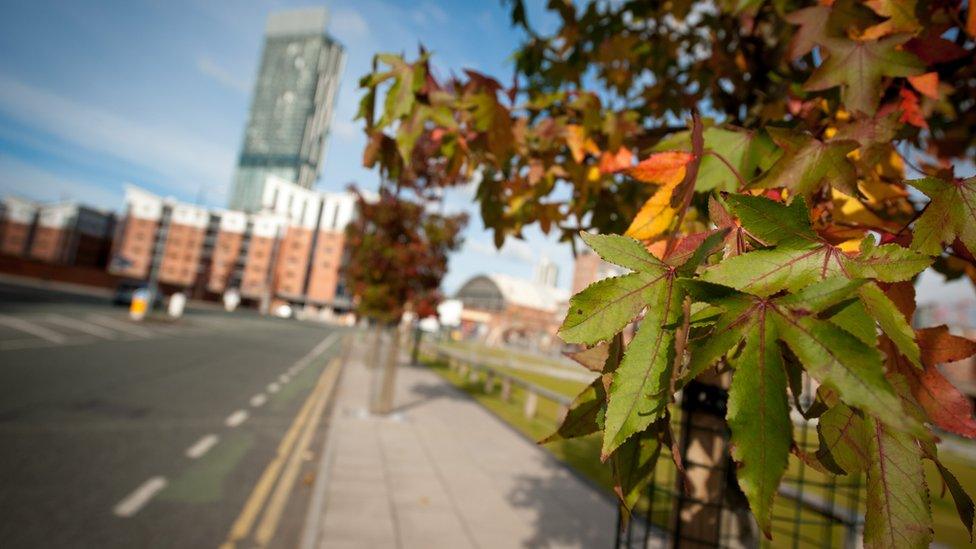
Trees need to be a key feature of urban landscapes, say campaigners
He explained the essence of Manchester's City of Trees project was to raise awareness among the public and policy makers of the role that trees can play in supporting and improving urban development areas.
"Greater Manchester wants to be a world-class city region. We have a lot of fantastic built development going on, but the natural environment needs to keep up with that," Mr Hothersall said.
"We felt there needed to be a bit more TLC given to existing habitats, but also to... create more woodlands and natural areas. The reason for that is all the benefits trees and woodlands provide to society.
"In terms of health... woodlands can do great things in terms of air pollution reduction... [and] can help to screen for noise pollution. They can also help cities and towns become more resilient to climate change both in terms of things like reducing the urban heat island effect and also reducing things like risk from surface water flooding."
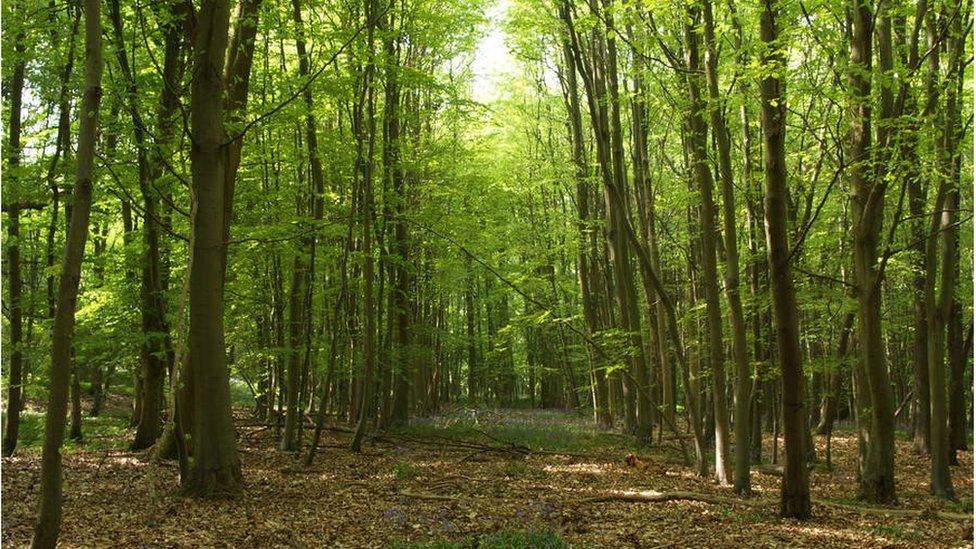
Urban woodlands provide green space for biodiversity and help mitigate problems, such as the urban heat island effect
The City of Trees project is working with researchers from the University of Manchester in an experiment to see how trees can help reduce surface water flooding in built up areas and clean up storm water.
As well as studies showing links between green spaces in urban areas and human wellbeing, there was also research highlighting a positive effect of trees in urban retail areas.
Mr Hothersall said: "There has been some really good work done showing that people actually spend more in retail areas and linger longer in retail areas where there are trees.
"We've seen that as quite a good example in terms of a sort of cafe culture with one of my projects in Stevenson Square in the Northern Quarter in Manchester. The introduction of trees and general improvement of the environment there have actually led to a cafe culture developing from what was one of the, I suppose, harder environments in central Manchester."
Follow Mark on Twitter, external
- Published31 October 2016
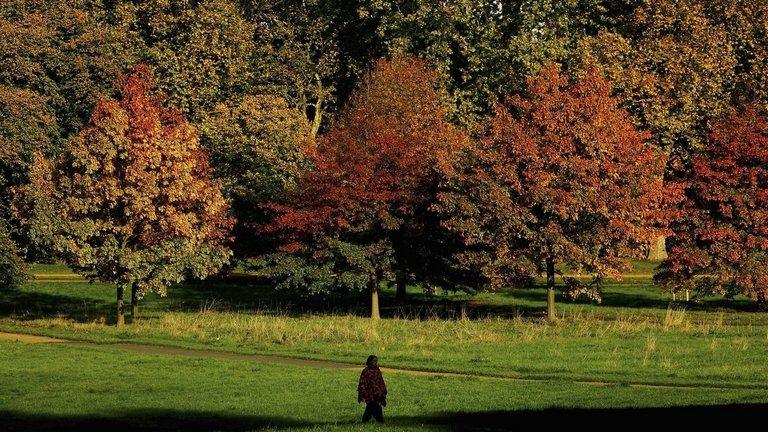
- Published15 November 2016
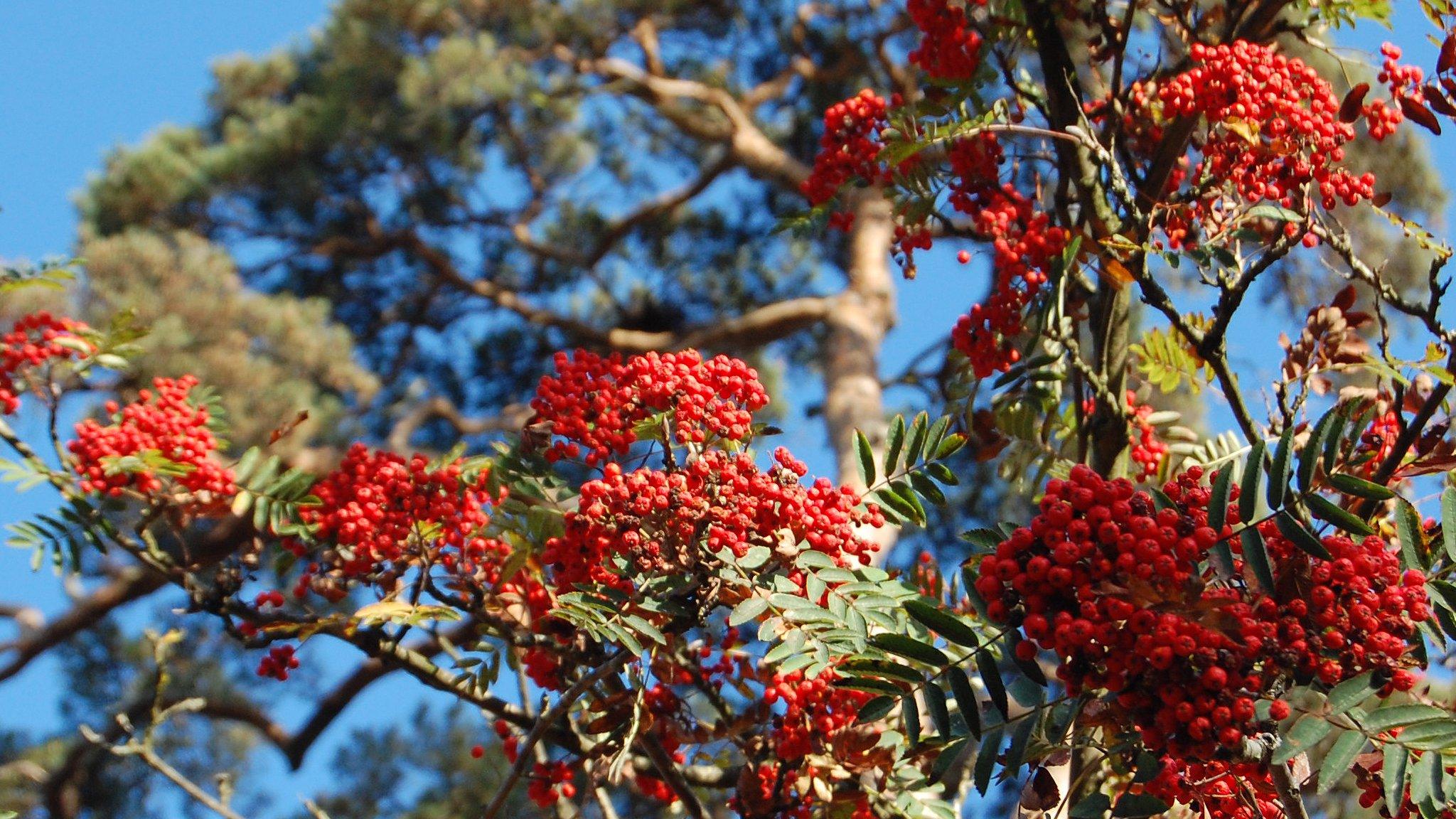
- Published21 May 2010